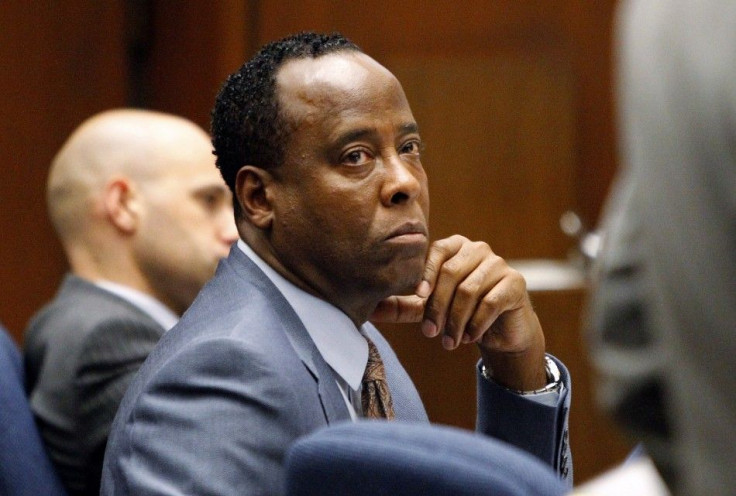Michael Jackson's Doctor Conrad Murray Trial Day 4: What's Murray's True Colors?

What's the true colors of Conrad Murray, Michael Jackson's doctor who has been accused of involuntary manslaughter? On Friday, Sept. 30, Murray's former patients and paramedics who tried to help resuscitate Michael Jackson on the day of the singer's death, gave testimony for the doctor.
Robert Russell, one of Murray's former patients, testified that Murray had saved his life from a heart attack several months before Jackson's death, which is probably positive for Murray and portrays him as a caring and capable cardiologist, although Russell was called by the prosecution.
The advice he gave me saved my life, Russell said. According to Russell, Murray put several stents in the arteries near his heart and helped him to change his unhealthy habits.
He gave me advice on exercise, on eating, just how to live my life, doing away with pressure and stress that I believe I thrived on in the business world, Russell, a sales manager for an electrical distribution firm, said to the jury.
However, in April 2009, Murray went to work for Michael Jackson as his personal doctor.
I was dismayed, flabbergasted, left out, Russell said. I did feel abandoned. But Russell said he could still contact Murray on the phone for advices and his clinic staff also helped continue his therapy.
Recently, when Russell's new doctor checked Murray's work on his heart, he was was very excited how my stents have held up, Russell said.
Another witness Richard Senneff, a paramedic who answered the 911 call from Jackson's home on June 25, 2009, took the stand, testifying that Jackson was already clinically dead, when he arrived at the scene.
When Senneff asked Murray twice if Jackson had underlying health problem, Murray failed to answer his question. The third time he denied that there was any underlying problem.
I asked again what his underlying health condition was. He (Murray) did not respond. And then he, I think it was the third time, he said, 'Nothing, nothing. He has nothing.' And simply that did not add up to me, Senneff said.
Moreover, when Murray was asked about which medicine Jackson had been taking, he only told the paramedics some Lorazepam to help the singer to sleep, but never mentioned about Propofol, which actually played an important role in the King of Pop's death.
He said, 'No he's not taking anything,' then he followed that up by saying, 'I just gave him a little bit of Lorazepam to help him sleep, Senneff testified.
And Murray insisted that the singer was suffering from dehydration and exhaustion. When questioned about the time Jackson went down, Murray said it was just before the 911 call. All the answers indicated that we had a good chance of saving Jackson.
But When I first moved the patient, his skin was very cool to the touch, his eyes were open, they were dry and his pupils were dilated, Senneff said. When I hooked up the EKG machine, it was flatlined.
Paramedics tried to re-start his heart, but in vain. They couldn't even can't find a vein, when they attempted to administer starter drugs to Jackson.
When Senneff was asked if he noticed any sign of life in Jackson the entire time he was with him, he said, No, I did not.
Furthermore, Robert Johnson, an executive with the company that makes the Nonin 9500 pulse oxymeter, which Murray used to monitor Jackson's pulse and blood oxygen level, testified on Friday.
According to Johnson, the device was designed for spot checking of vital signs and was specifically labeled against continuous monitoring.
The device, only valued $275, without an audio alarm, requiring someone to constantly keep an eye on the tiny screen. But Murray's company had been equipped with more updated devices, which would cost $1,200, according to Johnson.
Prosecutors believes because of lack of professional monitoring equipment, Jackson had died and Murray should be held criminally responsible for the singer's death.
The trial is scheduled to last about four weeks. If convicted, Murray could serve a sentence of up to four years in prison and also lose his medical license.
© Copyright IBTimes 2024. All rights reserved.











